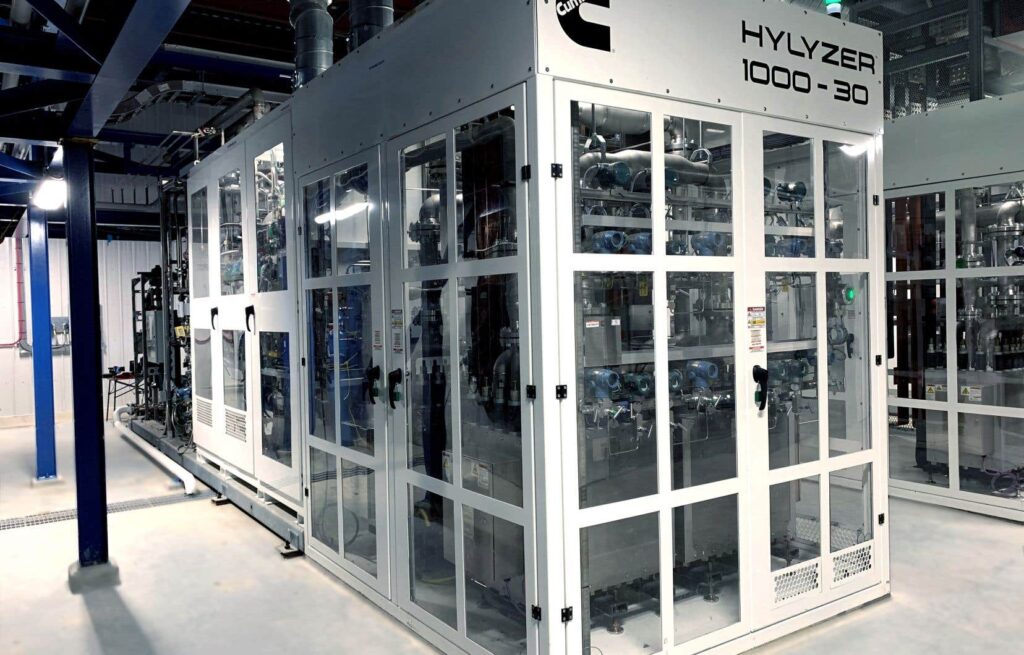
An international student is set to launch promising research at Monash University on the use of liquid hydrogen as a clean energy carrier. His work could provide significant insights into the applications and challenges associated with this innovative energy vector, already thriving in various sectors such as energy, transport, and industry.

An international student is preparing to collaborate with Monash University to conduct cutting-edge research on the use of liquid hydrogen as a clean energy carrier. This research aims to explore the potential of hydrogen in various sectors such as energy, transport, and industry, while highlighting its benefits and risks.
The importance of liquid hydrogen in the energy transition
At the heart of the energy transition, the use of liquid hydrogen is generating increasing interest. This energy carrier, commonly used in the space industry due to its cryogenic storage, allows for greater energy density. This advantage is essential for large-scale applications such as energy storage and distribution.
Why is hydrogen considered a clean energy source?
Hydrogen is often referred to as a clean energy carrier because, when used as fuel, it produces only water as a byproduct. This property makes it an ideal solution for reducing greenhouse gas emissions, especially when hydrogen is produced from renewable sources.
The challenges related to hydrogen production and storage
Hydrogen production, particularly by water electrolysis, is a promising technology but still expensive. Hydrogen storage, whether in gas or liquid form, also poses logistical and technical challenges. Cryogenic storage, which preserves hydrogen at very low temperatures, is particularly criticized for its complexity and high costs.
Risks and safety of hydrogen
Although hydrogen is a clean energy source, it nonetheless presents certain risks. Its highly flammable nature and tendency to cause explosions in the event of a leak pose significant safety challenges. Research is ongoing to develop safe and effective technologies for the handling and transport of hydrogen.
A project enriched by meetings and exchanges
The research project conducted at Monash University will be enriched by regular meetings with specialists from various backgrounds. These exchanges will deepen the understanding of issues related to hydrogen and identify best practices for its sustainable use.
Potential applications across various sectors
Long used primarily in chemistry and refining, hydrogen could soon play a key role in other sectors. Its potential for electricity storage, particularly in support of renewable energies, could transform how energy is managed and distributed.
The research on liquid hydrogen as a clean energy carrier conducted by an international student at Monash University is crucial. It could pave the way for new sustainable energy solutions, addressing the growing needs of our time while tackling the associated technical and safety challenges.
- Context: Collaboration with Monash University
- Research: Liquid hydrogen as a clean energy carrier
- Student: International
- Focus: Production, distribution, and storage of hydrogen
- Sectors impacted: Energy, transport, industry
- Production: Methods including water electrolysis for green hydrogen
- Risks: Explosion danger, storage safety
- Benefits: Clean energy, electricity storage, low environmental impact
L'étage supérieur est propulsé par le tout nouveau moteur réallumable Vinci, alimenté par 30 tonnes d'oxygène liquide et d'hydrogène liquide.
— ESA France (@ESA_fr) April 18, 2024
Elément crucial de cet étage supérieur, le moteur auxiliaire APU assure la pressurisation des réservoirs et fournit une poussée… pic.twitter.com/8mSiS4wBaf
“`
Articles similaires
Thank you!
We will contact you soon.














